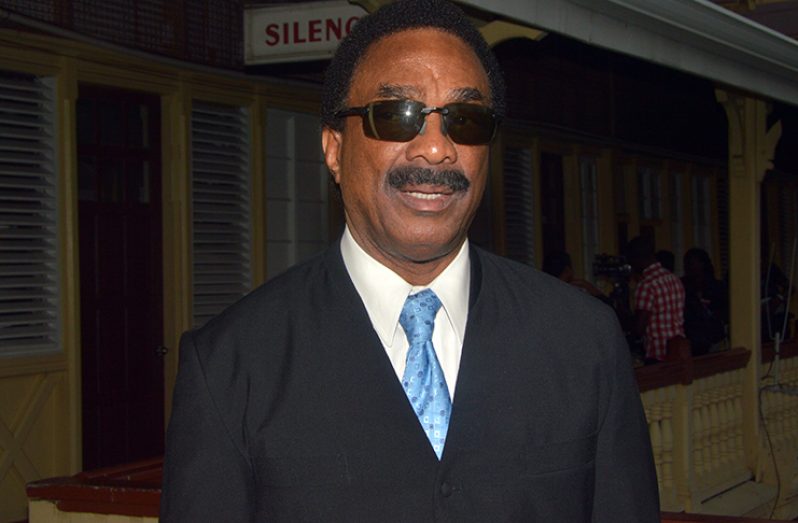MAINTAINING that it is the Guyana Elections Commission (GECOM) that is constitutionally required to hold elections and not government, Attorney General Basil Williams said that Article 106 (6) and 106 (7) could not have been interpreted in isolation of the other provisions of the Constitution.
In his written submissions in the case The Attorney General v The Speaker, The Opposition and Representative of the APNU, in which he is challenging the January 31 High Court decision, Williams told the Court of Appeal that Chief Justice Roxane George-Wiltshire erred and was misconceived in law when she failed to have regard to other provisions of the Constitution that impact the holding of elections.
In making his case, Williams pointed out that Article 106(6) and (7) set out the procedure for the resignation of the Cabinet and the government. According to sub-article (6), the resignation follows the defeat of the government by the successful passage of a no-confidence motion. On the other hand, sub-article (7) provides that the government, though defeated, shall remain in office and shall hold an election within three months or such longer period as the National Assembly, by resolution supported by at least two-thirds of the elected members of the National Assembly agrees.
“A literal and strict interpretation of sub-article (7) and more specifically the use of the word ‘hold’ would place the duty of holding an election on the government. Holding an election is in essence exercising control over the elections process from a pronouncement of a date until the announcement of a result. The word ‘hold’ means inter alia ‘possession’, ‘conduct’, ‘run’, ‘preside over’ and ‘control,’” he reasoned while referencing to the new Oxford Thesaurus of English.
Williams said, this however, could not have been the intention of Parliament as the government is not the constitutionally appointed body mandated to ‘hold’, ‘conduct’, ‘run’ or ‘preside’ over any elections in Guyana. “This construction is counter to the rationale for having a constitutional body responsible for the holding of elections as this body is to be free from political interference,” he said. The Attorney General said in the past the Elections Commission was not an independent body insulated from government’s involvement, explaining that government, through the President or minister of home affairs, had conduct over the affairs of GECOM. Further, the Elections Commission was not in charge of registration.
“In Notice-Constitutional Appointments (Saturday 18th January 1986), the President was charged with the responsibility with effect from 1985-12-28 of the Registration and Elections office. This changed in 1990 where by Notice-Constitutional Appointments dated 21st July 1990, the minister of home affairs was charged with the responsibility of the Registration and Elections Office.
Another example is found in Election Laws (Amendment) Act 1990, Act No 25 of 1990, section 4 which transferred the functions specified in section 4(2) conferred on the minister by the Representation of the People’s Act and the National Registration Act to the Elections Commission,” he pointed out.
Today, Article 226(1) and (7) guarantee GECOM’s independence. According to Article 226(1), in the exercise of its functions, GECOM shall not be subject to the direction or control of any person or authority.
“Therefore, it is submitted that sub-article (7) should be read alongside the other relevant provisions of the Constitution, namely Articles 161 (1), 161A, 161B and 162 and construed in a manner that expresses the true intent of the Parliament. These provisions deal with the establishment and functioning of the Elections Commission of Guyana (GECOM),” Williams further detailed.
In maintaining that the Chief Justice erred in law when she failed to have regard to other provisions of the Constitution, the Attorney General further alluded to the case– Attorney General of Grenada v. The Grenada Bar Association.
“The Elections Commission is a constitutional body responsible for the holding of elections, implementation of elections procedure and generally ensures the efficient functioning of the Secretariat of the Commission. It is a mandated constitutional body and the Constitution provides for its independence and autonomy. In other words, the independence of this body is guaranteed by the Constitution,” he emphasized.
In defense of his arguments, he alluded to several cases including S.R. Balasubramaniyan v State of Tamil Nadu (2006); Thomas v. AG (1981) 32 WIR 375; and Cooper v. Director of Personnel Administration [2006] UKPC 37.
The Attorney General is also maintaining that the Parliamentary Opposition – the People’s Progressive Party/Civic (PPP/C) did not secure an absolute majority in the National Assembly to have successfully passed the no-confidence motion. The Chief Justice upheld the decision of the Speaker of the National Assembly, Dr. Barton Scotland that 33 was the required majority, but the Attorney General is insisting that 34 or more votes would have constituted an absolute majority.



.jpg)








